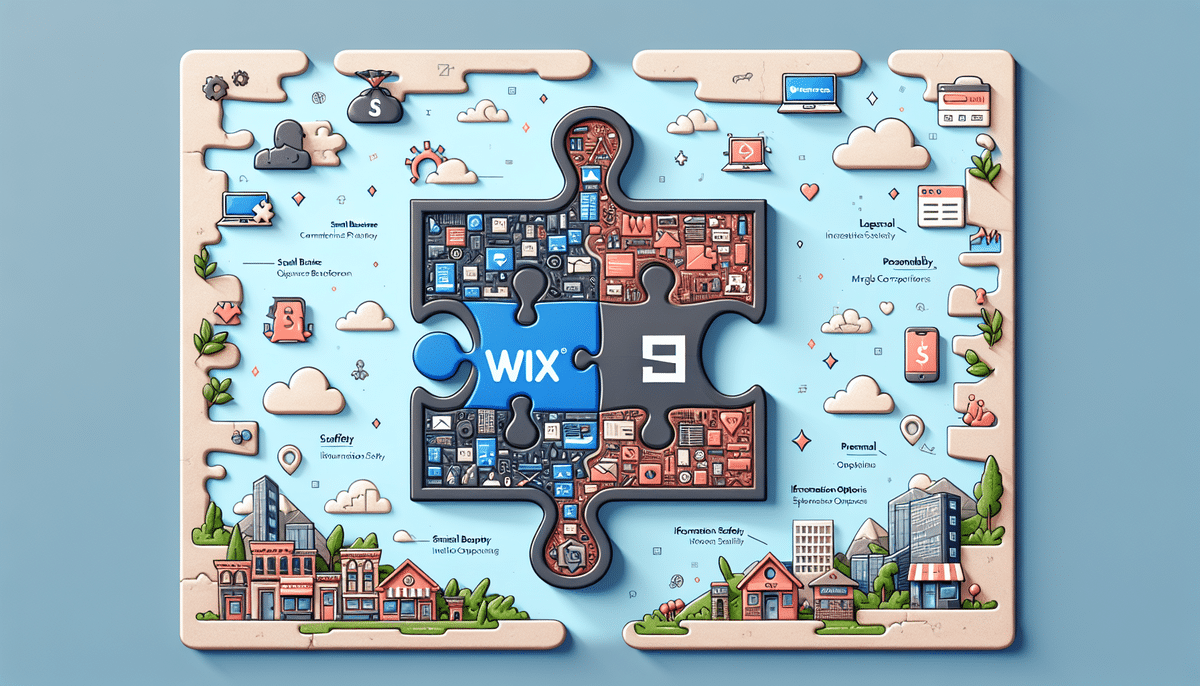Introduction to Shopify and Wix eCommerce
In the competitive world of online retail, choosing the right eCommerce platform is crucial for the success of your business. Shopify and Wix eCommerce are two of the most popular options available today, each offering unique features tailored to different business needs. This guide provides an in-depth comparison of Shopify and Wix eCommerce to help you determine which platform best aligns with your business goals.
Key Features and Customization Options
Core Features
- Product Management: Both platforms offer robust tools for adding, organizing, and managing products, including inventory tracking and variant management.
- Order Management: Efficient processing and tracking of orders are streamlined on both Shopify and Wix.
- Payment Processing: Multiple payment gateways are supported, ensuring flexibility for your customers.
- Shipping and Tax Calculation: Automated tools assist in calculating shipping rates and applicable taxes based on regions.
- Marketing Tools: Built-in SEO tools, email marketing integrations, and discount management help drive sales.
Advanced Features
Shopify stands out with advanced functionalities such as abandoned cart recovery, multi-currency support, and professional inventory management. These features cater to businesses looking for more sophisticated eCommerce solutions.
Customization Options
Customization is a critical factor in creating a unique online presence. Shopify offers extensive customization capabilities, allowing users to edit HTML and CSS directly. Additionally, Shopify’s large app store provides over 4,000 apps to enhance store functionality. In contrast, Wix eCommerce employs a user-friendly drag-and-drop interface, making it ideal for beginners but with limited depth in customization.
Pricing and Payment Options
Pricing Structure
Shopify offers five pricing tiers ranging from $29 to $299 per month, each providing different levels of features and support. Wix eCommerce is generally more affordable, with premium plans starting at $23 per month up to $49 per month. Both platforms offer free trials, allowing you to explore their features before committing.
Payment Gateways
Both Shopify and Wix support a variety of payment options, including major credit cards and PayPal. Shopify further expands its offerings with options like Apple Pay and Amazon Pay, alongside better mobile optimization for payment processing, enhancing the checkout experience for customers.
Ease of Use and User Experience
Interface and Usability
Shopify is designed specifically for eCommerce, offering a streamlined and managed interface that may require a steeper learning curve for complete beginners. In contrast, Wix provides an all-in-one website building experience with a highly intuitive drag-and-drop interface, making it easier for users with no technical background to set up their stores.
Customization Flexibility
While Shopify allows for deeper customization through code editing and a vast array of apps, Wix provides a more straightforward and visually driven customization process, suitable for users seeking simplicity.
SEO and Marketing Capabilities
Search Engine Optimization
SEO is integral for driving organic traffic to your online store. Shopify offers comprehensive SEO features, including customizable meta descriptions, title tags, and URL structures. Additionally, Shopify's backend is optimized for search engines, providing a competitive edge. Wix also offers solid SEO tools, suitable for beginners, but lacks some of the advanced SEO integrations that Shopify provides.
Marketing Tools
Both platforms provide built-in marketing tools such as email campaigns and social media integrations. Shopify’s extensive app store allows for more advanced marketing strategies, including influencer marketing and automated email workflows.
Integrations and Third-Party Apps
Extending the functionality of your online store through third-party integrations is essential for scaling your business. Shopify excels with its extensive app store, offering over 4,000 apps that cover various business needs from marketing to inventory management. Wix, while offering integrations, has a more limited selection, which might restrict growth for businesses requiring specialized tools.
Customer Support and Security
Customer Support
Shopify provides 24/7 customer support through phone, email, and live chat, ensuring assistance is always available. Wix offers customer support during business hours, which may not be sufficient for all users.
Security Features
Both platforms prioritize security by offering SSL certificates and secure payment gateways. However, Shopify goes further by providing advanced fraud analysis and prevention services, enhancing the security of transactions and safeguarding customer data.
Analytics and Reporting
Data-driven decision-making is crucial for the success of any online store. Shopify offers comprehensive analytics tools, including real-time sales data, visitor tracking, and customizable dashboards. These tools provide actionable insights to optimize store performance. Wix eCommerce provides basic analytical tools, which might be sufficient for smaller businesses but may lack the depth required for larger enterprises.
Pros and Cons
Shopify
Pros
- Advanced features like abandoned cart recovery
- Extensive app store with over 4,000 apps
- Superior SEO capabilities
- 24/7 customer support
- Enhanced mobile optimization
- Wide range of payment options
- Advanced security features including fraud prevention
Cons
- Higher pricing compared to competitors
- Steeper learning curve for new users
Wix eCommerce
Pros
- More affordable pricing plans
- User-friendly drag-and-drop interface
- Easy to set up for beginners
- Intuitive dashboard
- Good basic analytical tools
Cons
- Less advanced eCommerce features
- Limited third-party integrations
- Customer support not available 24/7
- Basic SEO and marketing functionalities
- Potential reliability issues with some templates
Conclusion: Which Platform is Best for Your Business?
Choosing between Shopify and Wix eCommerce depends largely on your business needs, budget, and technical expertise. Shopify is ideal for businesses seeking advanced eCommerce features, extensive customization, and robust customer support. It is well-suited for medium to large businesses aiming for scalability and sophisticated marketing strategies. On the other hand, Wix eCommerce is perfect for small businesses or individuals looking for an affordable, easy-to-use platform with essential eCommerce functionalities. We recommend taking advantage of the free trials offered by both platforms to explore their features firsthand and determine which one aligns best with your business objectives.
For more detailed comparisons and the latest updates on eCommerce platforms, visit reputable sources such as Shopify and Wix eCommerce.




















